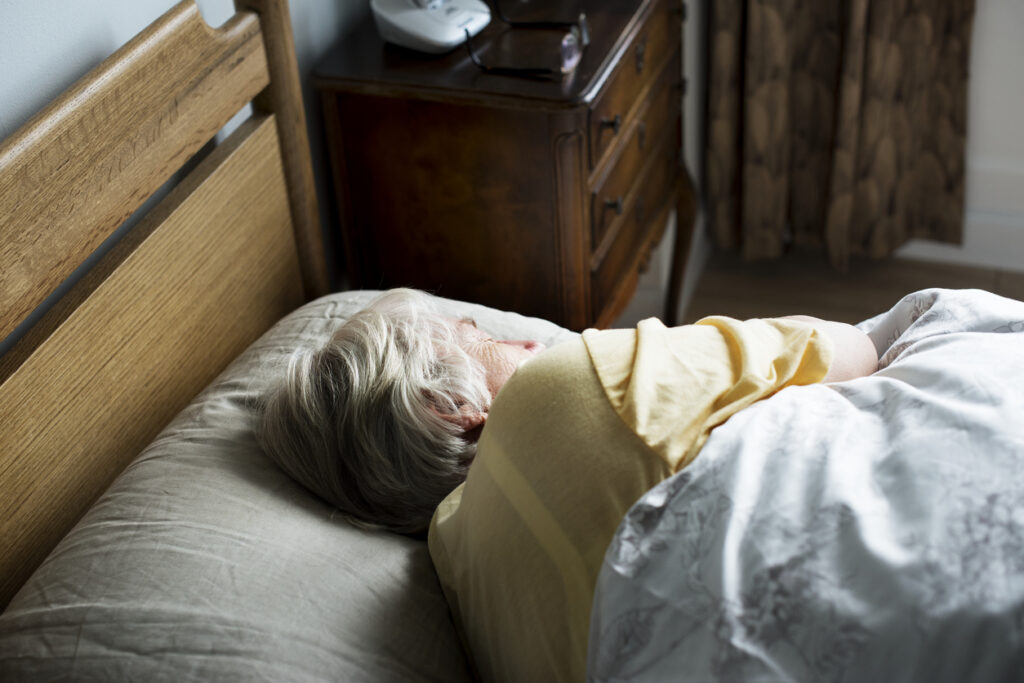Ignoring this list could spiral your seasonal blues into a full-blown depression that will drag you down.

Seasonal blues might sneak in quietly—a little fatigue here, a sprinkle of irritability there—but left unchecked, they can snowball into something heavier. What starts as mild discontent in the colder, darker months can morph into a full-blown depression that weighs you down emotionally and physically. The tricky part? Some of your most familiar winter habits may be fueling the fire without you even realizing it.
Steer clear of these 10 common mistakes, and you’ll give yourself a fighting chance to feel brighter, lighter, and more in control this season.
1. Staying Cooped Up Inside Is a Fast Track to Feeling Worse

While it’s tempting to hunker down and stay warm inside, spending all your time indoors can quickly become detrimental to your mental health. The lack of sunlight reduces your body’s ability to produce vitamin D and regulate serotonin levels—both of which play major roles in your mood, Ryan Raman of Healthline reported.
Staying in might seem like a harmless way to ride out the cold, but the longer you isolate yourself from the outdoors, the more disconnected and stagnant you start to feel.
Getting outside, even for just 15 minutes a day, can break that cycle. Fresh air, a bit of sunshine (even through clouds), and movement help re-engage your senses and shift your mindset.
You don’t need to go on a full-blown hike—just bundle up, step outside, and take a walk around the block. A change of scenery and some natural light can refresh your mood in ways your couch never could.
2. Skipping Exercise Drains Your Energy and Motivation

When it’s cold and dark, exercise often feels like the last thing you want to do—but avoiding it makes everything harder. Physical activity is one of the most powerful natural antidepressants available, as mentioned by experts at Mayo Clinic. It helps release endorphins, boosts dopamine levels, and increases blood flow to your brain—all of which improve focus, mood, and energy levels.
You don’t need to commit to a full workout routine to see benefits. A 10-minute stretch, a brisk walk, or even dancing to your favorite song in the kitchen can interrupt a low-energy cycle and lift your spirits. The hardest part is getting started, but once you move, your body and brain kick in to reward you. Keep it simple and consistent, and you’ll notice a difference in how you feel each day.
3. Messing Up Your Sleep Schedule Makes Everything Harder

Winter makes it all too easy to stay in bed longer, snooze through mornings, and stay up late scrolling. But inconsistent or excessive sleep messes with your circadian rhythm, throwing off your hormone levels and making mood regulation harder. It also increases grogginess, reduces motivation, and contributes to a feeling of overall lethargy.
A regular sleep routine can do wonders for your mental health during the colder months, as per researchers at Brown Health University. Going to bed and waking up at the same time every day—even on weekends—helps your body maintain a steady rhythm. Try winding down with a calming activity, like reading or a warm bath, instead of screen time. Over time, your energy will stabilize, and your mind will feel clearer and more capable of handling seasonal stress.
4. Overindulging in Comfort Food Leads to More Guilt and Sluggishness

Comfort food can feel like a warm hug when you’re struggling, but eating too much of it can make things worse. High-sugar, high-carb meals may give you a quick boost, but they often lead to energy crashes and mood dips. Emotional eating becomes a cycle—feel bad, eat to feel better, then feel worse again—and it’s hard to break once it takes hold.
Instead, try to balance indulgence with intention. Add in foods that support mental clarity and emotional stability—think leafy greens, salmon, nuts, and dark chocolate. These mood-supporting nutrients can help your body fight off stress and fatigue. You don’t need to give up the mac and cheese altogether, but being mindful of what’s on your plate helps you stay grounded and energized through the winter.
5. Avoiding Social Plans Creates a Vicious Cycle of Isolation

It’s completely normal to want to retreat when your mood dips—but turning down every invitation can deepen your sense of loneliness. Human connection is one of the most effective ways to combat seasonal depression, and withdrawing from others makes recovery harder. It may feel easier to stay in, but the longer you isolate, the harder it becomes to reengage.
Start small. You don’t need to host a dinner party—just text a friend, hop on a short video call, or say yes to a low-key coffee meet-up. These moments of connection remind you that you’re not alone and that others care. Sharing laughs or even just venting a bit can release tension and reframe your day. Social interaction isn’t a luxury—it’s emotional medicine.
6. Letting Negative Thoughts Spiral Keeps You Trapped

When it’s cold and gloomy outside, your inner monologue can easily turn sour. Negative thinking can feel like a background soundtrack you can’t turn off—and if you don’t interrupt it, it becomes your default. This internal loop can convince you that you’re stuck, unmotivated, or incapable of change.
You don’t have to believe every thought you think. Challenge negativity with facts, journaling, or affirmations. Write down three small things you’re grateful for, or say something kind to yourself out loud. If that feels too forced, talk to someone who can reflect reality back to you. Shifting your mindset isn’t about pretending to be happy—it’s about not giving those dark thoughts full control.
7. Skipping Light Therapy Leaves You Stuck in the Shadows

If you’re not using light therapy, you’re missing a powerful tool that can make a huge difference. Seasonal Affective Disorder (SAD) is triggered in part by a lack of light, and light therapy boxes simulate daylight to help regulate mood and energy. It’s not magic, but it is science-backed—and surprisingly simple to incorporate.
Use a light therapy box in the morning for 20–30 minutes while you read, journal, or sip your coffee. Look for one that emits at least 10,000 lux and avoid looking directly into it. Within a few days to a couple of weeks, many people feel more energized and alert. Think of it like taking your morning vitamins—consistent use is key.
8. Taking On Too Much Leads Straight to Burnout

Winter already puts your body and mind in a lower gear, so pushing yourself to keep up a hectic pace is a recipe for emotional and physical burnout. Saying “yes” to every invitation, project, or favor might make you feel productive at first, but it often results in exhaustion and resentment.
Give yourself permission to slow down and protect your energy. Learn to say “no” with kindness but firmness, and prioritize the things that genuinely matter. Rest isn’t laziness—it’s necessary recovery. Build space into your week for unstructured downtime, and use it to refuel instead of catch up. Slowing your pace allows you to be more present and feel less overwhelmed.
9. Turning to Alcohol for Relief Backfires Every Time

Alcohol might seem like a shortcut to relaxation, but it’s a slippery slope during the darker months. While it may offer short-term relief, it messes with your sleep, dehydrates you, and exacerbates feelings of sadness and anxiety. The aftermath of drinking can intensify fatigue and leave you emotionally flat.
If you find yourself reaching for a drink just to cope, it’s worth asking what your body or mind really needs. Maybe it’s rest, a conversation, or simply a change in scenery. Try alternatives like herbal tea, sparkling water with citrus, or even a warm spiced mocktail. Choosing clarity over escapism helps you stay grounded and more in control of your emotions.
10. Ignoring Professional Help Keeps You From Moving Forward

There’s a point where seasonal sadness moves beyond self-help strategies, and when that happens, seeking professional help is the most courageous step you can take. Mental health isn’t a DIY project when you’re overwhelmed, hopeless, or struggling to function. Therapy, medication, or even alternative treatments like acupuncture or light-based interventions can create real, lasting change.
Asking for help doesn’t mean you’ve failed—it means you’re serious about getting better. Don’t let pride or stigma keep you stuck in a place of pain. Talk to a therapist, consult your doctor, or reach out to a support group. Your wellness is worth the effort, and you don’t have to go through this season alone.
